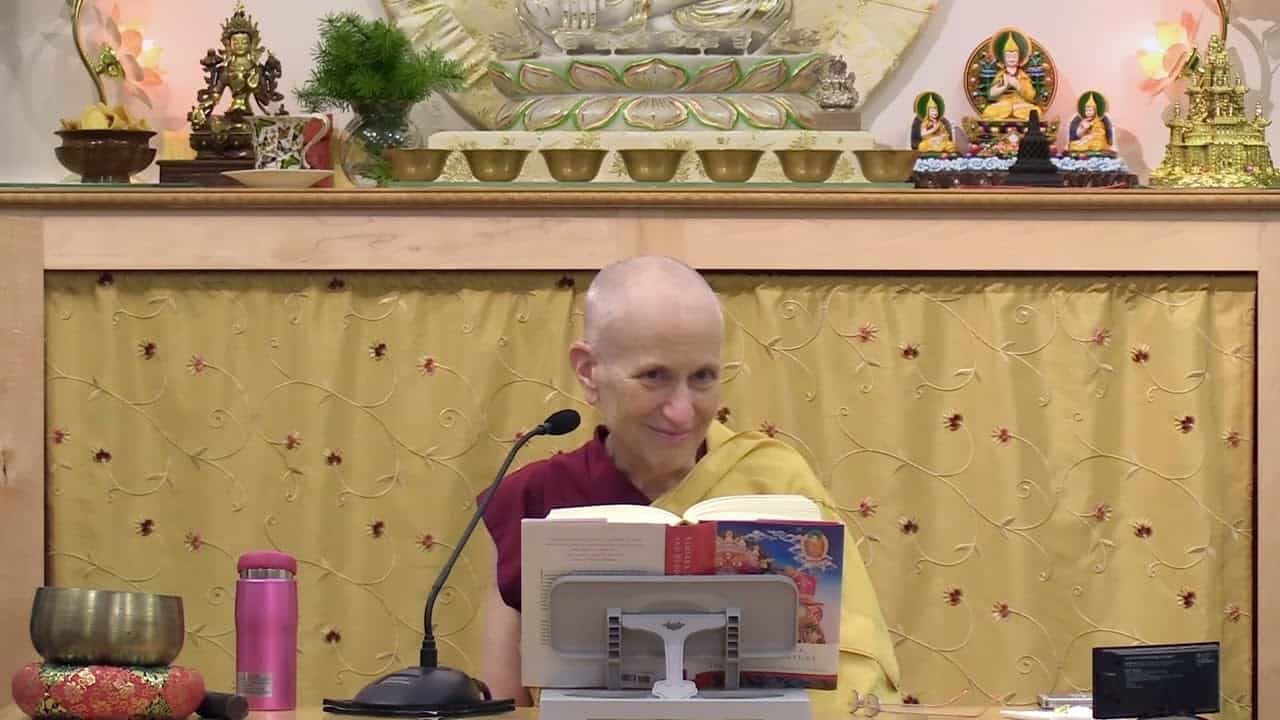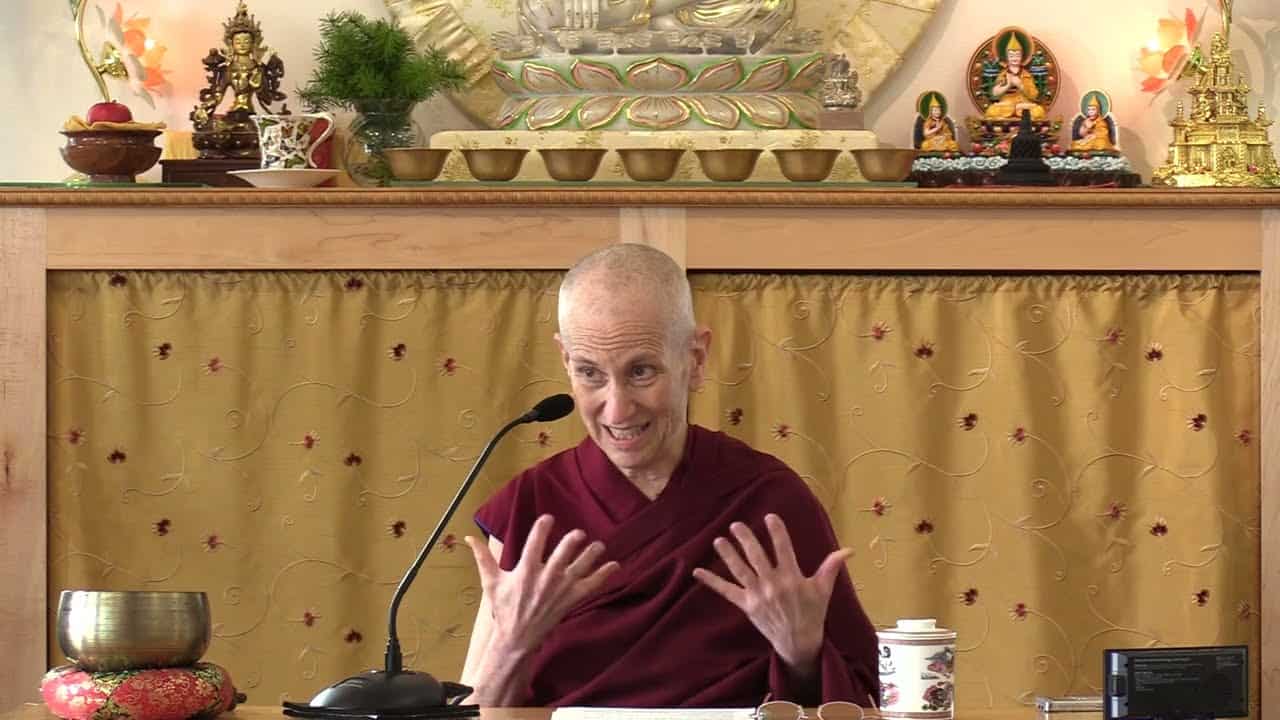Compassion
02 Kamalashila's "Stages of Meditation"
Part of an online course on Kamalashila's Stages of Meditation given by Geshe Yeshe Thabkhe for Sravasti Abbey in 2022.
- Motivation: suffering is the nature of samsara
- Complete and unmistaken causes of Buddhahood
- Three primary causes of the state of omniscience:
- Compassion
- Awakening mind of bodhicitta
- Skillful means
- Great compassion is the root
- Accomplishes own aim and aim of others
- Essential at the beginning, middle, end
- Cause of non-abiding nirvana
- Chandrakirti: like a seed, like water, like ripening of harvest
- Need for attitude of love and compassion
- Two ways to develop virtuous qualities
- Work to develop basic foundation
- Work to reverse old ways of thinking
Geshe Yeshe Thabkhe
Geshe Yeshe Thabkhe was born in 1930 in Lhokha, Central Tibet and became a monk at the age of 13. After completing his studies at Drepung Loseling Monastery in 1969, he was awarded Geshe Lharampa, the highest degree in the Geluk School of Tibetan Buddhism. He is an emeritus professor at the Central Institute of Higher Tibetan Studies and an eminent scholar of both Madhyamaka and Indian Buddhist studies. His works include Hindi translations of The Essence of Good Explanation of Definitive and Interpretable Meanings by Lama Tsongkhapa and Kamalasila's commentary on the Rice Seedling Sutra. His own commentary, The Rice Seedling Sutra: Buddha’s Teachings on Dependent Arising, was translated into English by Joshua and Diana Cutler and published by Wisdom Publications. Geshela has facilitated many research works, such as a complete translation of Tsongkhapa’s The Great Treatise on the Stages of the Path to Enlightenment, a major project undertaken by the Tibetan Buddhist Learning Center in New Jersey where he teaches regularly.


